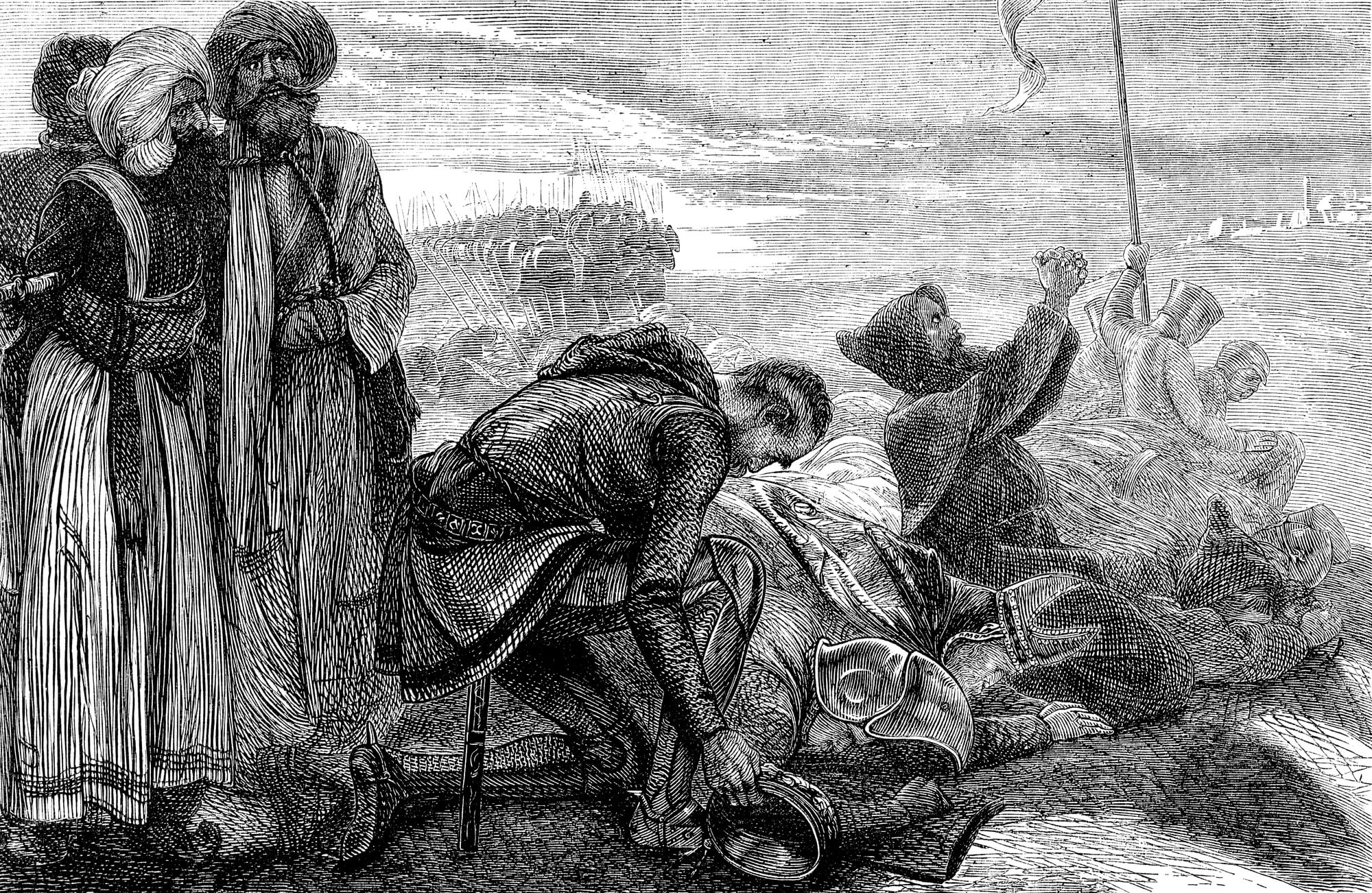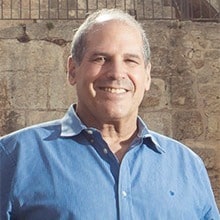The late Prof. Roni Allenblum dedicated his life to the study of climatic effects on cultures and historical events. A new study, now published posthumously, suggests that their influence is greater than we thought

Climate changes are a major factor in the design and development of society. Even seemingly "ordinary" events, which do not seem dramatic or catch the eyes of the media in an unusual way, may have a substantial impact on human societies. Many times the information about these crises - their length, intensity and degree of impact on society - remain unknown. Climate crises of this type - in the form of droughts, unexpected rains, cold waves, etc., affect human societies and can also develop into a deterioration in political stability, violent conflicts and waves of migration.
This study, which focuses on climate crises, was carried out by the late Prof. Roni Allenblum and PhD student Tal Ulos, from the Department of Geography and the School of Environmental Studies at the Hebrew University and was submitted just two weeks before Prof. Allenblum's sudden death. After his death, Tal continued the work on publishing the research alone, until it was recently published in the prestigious journal "Humanities & Social Sciences Communications". The article is also part of a research group that operated in recent years within the framework of the Jack, Joseph and Morton Mendel School for Advanced Studies in the Humanities at the Hebrew University as well as in collaboration with a research group funded by the European Union Research Foundation (ERC). The uniqueness of the research is the combination between a historical and archaeological perspective and a review of current events. The researchers examined three cases throughout history, in which a concentration of relatively routine climate events led in a short time to harm the availability of food and as a result to social unrest, conflicts, and even the collapse of that society.

The research was based on an analysis of historical sources and in the case of Mali on data from a variety of sources such as surveys and reports describing the climatic, economic and social situation before and during the outbreak of the conflict, as well as quantitative data and information such as the monthly rainfall, drought index, food prices and more.
The first historical case examined in the article deals with the fall of the Helio Dynasty, which ruled northern China and Mongolia, between the years 907-1112 and was investigated in collaboration with Prof. Gideon Shelah-Lavi and Dr. Ye-Li Li. The second case study analyzes the climatic crisis and its impact on the complex civilizations of Western Asia in the twelfth century.
The third case, from recent years, deals with the social and political collapse of the Republic of Mali in West Africa, in 2012-2013. For example, between 2009-2011, Mali experienced a period of drought in the north and center of the country. The article revealed that the rebellion against the central government also started from that region and that along with severe floods in the summer of 2012, which led to a further increase in food prices, the breaking point in the country occurred. Following it, the conflict turned from a limited local conflict into a severe war that included waves of displaced persons and refugees and the intervention of international military forces.
Much of the current engagement and discussion on climate change concerns the cause, the human factor, for which we are experiencing climate change, and the way in which we can reduce greenhouse gas emissions and mitigate the damage caused. This research focuses not on the cause but on the processes themselves and their results. The main conclusion of the article is that the reduction in food availability for a not too long time - a few years to a decade - caused by gradual climate crises such as droughts, can have a dramatic and long-term effect on human societies. To some extent, it can be said that such gradual deterioration, because of its continued damage to food availability, has a more fundamental and profound social impact than very powerful and short-term climate events, which have a limited impact on food security. Tal Olus explains that "according to the results of our research, this is not a very long time, and it is not necessarily particularly dramatic events that are well photographed. The importance of the research is precisely in the understanding that even 'ordinary' events can lead to dramatic results."
The late Prof. Roni Allenblum was a senior researcher in the Department of Geography at the Hebrew University, a historian of the Middle Ages and a geographer of historical cities, an expert in the history of the Levant in the Middle Ages and the Crusades, and he died of cardiac arrest last January. His most recent studies dealt with environmental and climatic history, the history of urbanization and the history of Jerusalem. Allenblum was also a member of the Israel National Academy of Sciences. Based on these works, Prof. Allenblum developed the 'fragility' approach, according to which climatic disturbances may lead to the destabilization and even collapse of human societies.
About working with Prof. Allenblum, Tal said: "The publication of the article was received by me with mixed feelings. On the one hand I was very happy about its publication and on the other hand I was very hurt that Roni is not with us to share this moment. To a certain extent, the publication of the article is a closing of the circle and another farewell to Rooney, and is part of Rooney's legacy. We submitted the article two weeks before Roni passed away unexpectedly, and I did the work on the following versions of the article alone and in a constant dialogue with Roni that took place in my head. It is important for me to say that this will not be his last publication. Since his death, friends, colleagues and family members have been working to publish a comprehensive and groundbreaking book that summarizes Roni's research over the past decade."
More of the topic in Hayadan:
- Israeli researchers discovered evidence of the collapse of a commercial vine branch in the Negev 1500 years ago, during a time of plague and climate change
- In the past there were periods of drought lasting hundreds of years in the Land of Israel
- How is Israel preparing for climate change?
- 2010 - one of the two hottest years in history
